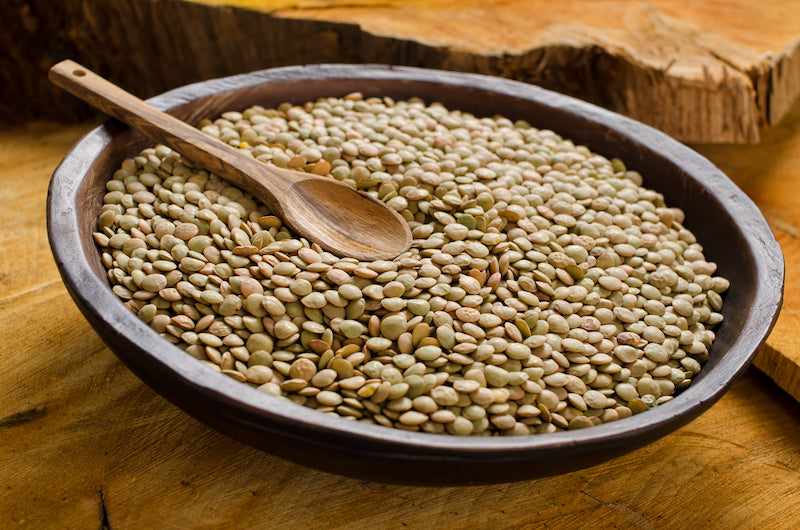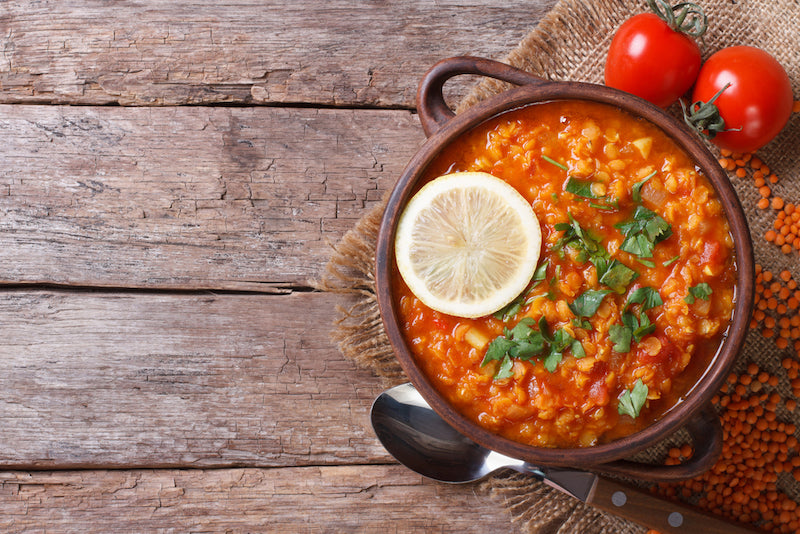Pea protein is a popular high-quality protein option for people following plant-based diets. But Many plant-based foods and supplements often contain ingredients that are high in FODMAPs.
FODMAPs are a group of carbohydrates that can be difficult for some people to digest, and for that reason, some people temporarily choose to follow a low FODMAP diet to mitigate symptoms.
This article will explain what pea protein is and if you can eat pea protein when following a low FODMAP diet.
What is in Pea Protein?
Pea protein is a powder supplement that is made from processing yellow peas. The process involves extracting protein from the peas, and then the protein is concentrated and dehydrated, forming a protein and nutrient-dense supplement.
People commonly add pea protein to foods and shakes to increase the protein in their diet.
Plus, it’s suitable for a wide variety of diets as it’s naturally vegan, gluten-free, and easy to digest.
Can You Eat Pea Protein on a Low FODMAP Diet?

Before explaining if you can in fact eat pea protein on a low FODMAP diet, it’s important to understand what a low FODMAP diet is.
FODMAPs is an acronym that stands for fermentable oligosaccharides, disaccharides, monosaccharides and polyols. Each of these compounds is a short-chain carbohydrate that the small intestine can sometimes have difficulty absorbing.
As a result, the bacteria in the intestines ferment these carbohydrate chains, forming excess gas in the digestive tract, sometimes leading to bloat and other digestive symptoms such as constipation or diarrhea.
Some people are more sensitive to FODMAPs than others, and therefore may choose to temporarily follow a low FODMAP diet. It’s important to understand that a low FODMAP diet is not meant to be followed for longer than a few weeks, because ultimately FODMAP foods are a good source of nutrients and fiber.
A temporary low FODMAP diet can be helpful in understanding which FODMAPs you’re sensitive to. After all FODMAPs are eliminated for a short time, each FODMAP group would be introduced slowly, one at a time, to assess for symptoms and sensitivity. In general, it’s not likely for someone to be sensitive to all FODMAP-containing foods.
With that all being said, the low FODMAP diet is a useful and temporary protocol that some people utilize to better understand digestive symptoms.
When it comes to pea protein, many people ask if they can include pea protein on a low FODMAP diet.
Luckily, the answer is yes.
Pea protein powder is a low FODMAP protein that is easily digested, and absorbed, and it’s unlikely to lead to digestive upset, even for the most sensitive systems.
How Much Pea Protein Should You Have?
There is no set recommendation for how much pea protein you should consume.
Pea protein would be a great way to increase protein in your diet, and may help you get more protein when you’re on the go.
Most people need about 0.8-1.2 grams of protein per kilogram of body weight. Therefore, a 150 lb person (68kg) would need 54-82 grams of protein daily.
One serving of our pea protein powder contains 27 grams of protein, and there is no reason that this supplement couldn’t provide a portion of their daily protein needs. Simply having 1 serving of Naked Pea protein would provide nearly half of this person’s daily protein needs.
While pea protein is a great source of protein, there is something to be said about getting a varied diet and consuming a wide variety of foods and nutrients. Aim to include a variety of protein-rich foods in your diet to maximize nutrient intake.
Does Pea Protein Cause Stomach Issues?
Pea protein is unlikely to cause stomach issues. Interestingly, while peas themselves are considered a high FODMAP food and may cause digestive upset, pea protein powder is in fact low in FODMAPs.
Once the peas are processed, most of the fiber is removed, which is the part that is more likely to cause stomach issues like gassiness and bloating.
However, some protein blends may have added ingredients that may trigger symptoms in some people. Be sure to read ingredient labels for any added ingredients that may not be tolerated.
For example, a common supplement additive is inulin. Inulin is a fiber and in and of itself is totally harmless. However, people with sensitive symptoms, such as those with IBS, can be particularly sensitive to fibers like inulin and it’s probably best to avoid this ingredient. Another common additive that can cause digestive upset is any sort of artificial sweetener or sugar alcohol like sucralose or sorbitol.
You can also be rest assured that pea protein is naturally vegan, gluten-free, dairy-free, and does not contain any common allergens such as eggs, nuts, wheat, or soy. Therefore, most people can tolerate pea protein super well. However, if you have an intolerance or sensitivity to peas, then of course you probably should avoid pea protein.

How to Use Pea Protein
Pea protein is quite versatile and can be easily added to a variety of foods and drinks.
Simply blend pea protein into your favorite smoothie or protein shake for a quick breakfast, snack, or post-workout fuel.
You can also mix pea protein into oatmeal, baked goods, or yogurt.
You may also be able to find products such as protein bars and protein cookies that contain pea protein.
Also Read: Whey Protein vs. Pea Protein
What Other Protein Powders are Low FODMAP?
When following a low FODMAP diet, choosing protein powders such as whey protein isolate, egg protein, and rice protein, are all good options.
Of course, always be sure to check nutrition labels for added ingredients that may not be low FODMAP such as inulin, artificial sweeteners, and even things like coconut flour.
Common Pea Protein FAQs
Is Pea Protein Easy to Digest?
In general, the body is better able to digest and absorb animal proteins over plant proteins. However, this does not mean we should avoid plant protein by any means. Sometimes just increasing our intake of plant protein is a good way to help the body get what it needs.
When it comes to plant-based protein options, pea protein comes out on top in terms of digestibility and absorbability (1).
Is Pea Protein a Complete Protein?
Pea protein is a complete protein. However, while it contains all essential amino acids, it’s low in methionine (2).
But no need to be concerned because it’s easy to get methionine from other food sources in your diet such as eggs, fish, poultry, beef, or even simply brown rice.
Will Pea Protein Help Me Feel Full?
In general, following a high-protein diet can help with feelings of satiety. Consuming pea protein powder is an easy way to increase daily protein intake, which might help with feelings of fullness.
In fact, one study found that consuming 20 grams of pea protein before meals helped increase satiety and even reduced intake during the meal (3).
Quick Summary
Pea protein is a high-quality, easy-to-digest, plant-based protein source.
It’s suitable for a wide variety of dietary needs and preferences, as it’s vegan, gluten-free, largely allergen-free, and low FODMAP.
If you’re following a low FODMAP diet, consuming pea protein is completely safe and is unlikely to contribute to digestive symptoms.
Plus, pea protein is easy to mix into a wide variety of foods and beverages, and it’s super simple to take on-the-go.
If you’re looking to add more protein to your diet and you’re looking for low FODMAP options, pea protein is a great choice.







